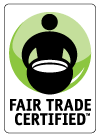About Rwanda Misozi Kopakaki
Arrived February 2022, new crop in Grainpro. Misozi Kopakaki is grown in the Karongi District of western Rwanda by over 800 small farmers. The farmers in this area have pooled their coffee, resources, and knowledge together in an effort create the best coffee possible by forming a cooperative they called Kopakaki. After forming their coop, they joined a group of coops called Misozi to aid in the final processing and exportation of their coffee.
The Misozi and Kopakaki coops are proudly certified Fair Trade to guarantee transparency and fairness throughout their growing community.
German missionaries and settlers brought coffee to Rwanda in the early 1900s. Large scale coffee production was established during the 1930 & 1940s by the Belgian colonial government. Coffee production continued after the Belgian colonists left. By 1970, coffee had become the single largest export in Rwanda and accounted for 70% of total export revenue. Coffee was considered so valuable that, beginning in 1973, it was illegal to tear coffee trees out of the ground. Between 1989 and 1993, the breakdown of the International Coffee Agreement (ICA) caused the global price to plummet. The Rwandan government and economy took a hard hit from low global coffee prices. The 1994 genocide and its aftermath led to a complete collapse of coffee exports and vital USD revenue, but the incredible resilience of the Rwandan people is evident in the way the economy and stability have recovered since then.
Modern Rwanda is considered one of the most stable countries in the region. Since 2003, its economy has grown by 7-8% per year and coffee production has played a key role in this economic growth. Coffee has also played a role in Rwanda's significant advancements towards gender equality. New initiatives that cater to women and focus on helping them equip themselves with the tools and knowledge for farming have been changing the way women view themselves and interact with the world around them. Today, smallholders propel the industry in Rwanda forward. The country does not have any large estates. Most coffee is grown by the 400,000+ smallholders, who own less than a quarter of a hectare. The majority of Rwanda's coffee production is Arabica. Bourbon variety plants comprise 95% of all coffee trees cultivated in Rwanda.
Process: Cherry is selectively handpicked to remove any damaged or under ripe cherries. Washing stations only accept perfectly ripe cherries, so farmers take more care when they pick to ensure the maximum amount of cherry is accepted. Cherries are floated to remove those with insect damage or otherwise low density. The cherry is then wet fermented for 24 hours to remove the remaining mucilage. After fermentation is complete, the parchment is sent through grading canals to separate into three levels of density. Finally, the parchment is soaked for around 20 hours to improve quality and shelf life and to remove any remaining mucilage. After washing, the parchment is removed from the water and is delivered to pre-drying tables to be sorted by hand. Defects are often easier to catch when the parchment is still wet. After this process, the parchment is laid on tables to sun-dry and frequently turned over for even drying.
- Elevation: 1525 to 2400 meters
- Varietals: Bourbon
- Processing: Fully Washed
- Drying Process: Raised Beds
- Harvest Months: June - September
- Export Months: August - November
Cup Characteristics: Brown sugar, very sweet, toast. Very clean cup. Substantial, smooth body.
Roasting Notes: Full City roast will develop the body. When going for light roasts develop up to but not beyond second crack. This coffee can be dark roasted successfully. It is sufficiently hard/dense to enable dark roasting.


